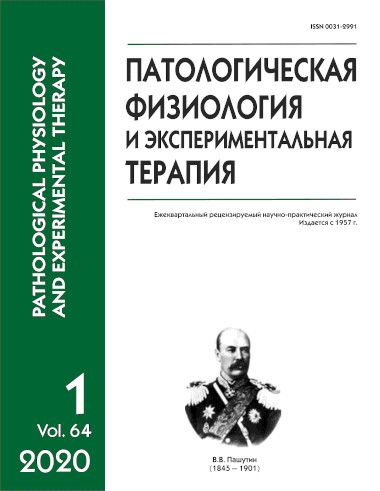Anti-inflammatory activity of the moldavian dragonhead extract
Abstract
Moldavian dragonhead (Dracocephalum moldavica L.) is used in traditional medicine as an anti-inflammatory, wound-healing, expectorant, and sedative means. In our Institute, a Moldavian dragonhead herb dry extract (total phenolic content, 64.12% in cynaroside equivalent) was developed and conventionally named Lyukatil. Objective. To study acute toxicity and anti-inflammatory activity of the dragonhead extract for developing a drug based on this extract. Method. Parameters of acute toxicity and anti-inflammatory activity of the extract were assessed. The study of acute toxicity of the extract was performed using the Kerber method on male white mongrel mice (n=30). Lyukatil was administered to the animals intragastrically at doses of 500 mg/kg, 1000 mg/kg, 1500 mg/kg, and 2000 mg/kg. Anti-inflammatory activity of the Moldavian dragonhead extract was determined in vitro using an enzyme Biotest system based on inducible NO synthase. Mongrel male mice were used to study the anti-inflammatory activity of the extract in vivo. The effect of the extract at a dose of 200 mg/kg on the exudative phase of inflammation was evaluated on a model of 1% formalin-induced edema. Indomethacin 5 mg/kg was used as a reference drug. Formalin edema was induced by a single subplantar injection of 0.05 ml of 1% formalin as a phlogogenic agent under the aponeurosis of the right hind leg. The degree of edema was determined by the difference in leg weights in control and experimental animals; then the decrease in edema was calculated in per cent. Results. A single administration of the extract Lyukatil did not cause death of animals, changes in the appearance or in behavioral responses, shortness of breath, or drowsiness. In accordance with the toxicity classification for chemical substances as per GOST Standard 12.1.007‒76, Lyukatil is a low-toxic substance. The extract at a dose of 200 mg/kg exerted a significant anti-inflammatory effect as shown by suppression of the exudative phase of formalin-induced inflammation by 33.7% compared to the control group. However, this effect was inferior to the anti-inflammatory effect of indomethacin. Conclusions. The Moldavian dragonhead herb dry extract under the conventional name of Lyukatil is a low-toxic substance that has a significant anti-inflammatory effect both in vitro and in vivo and is a promising target for further pharmacological studies as an anti-inflammatory drug.






